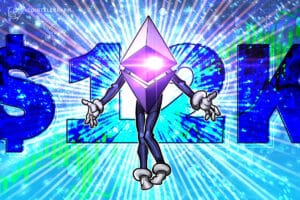Crypto markets bounced back when South Korea lifted martial law

The cryptocurrency market regained some ground after South Korean President Yun Suk-yeol reversed his declaration of martial law.
It was understood from local reports that the statement was made at a cabinet meeting around 4:30 am local time. About 190 lawmakers in the country's 300-member parliament rejected the martial law order.
“I will accept the request of the National Assembly and raise it,” he said, according to The Washington Post.
Under South Korean law, the government must lift martial law if a majority vote in parliament so requests.
Martial law troops entering the National Assembly building pic.twitter.com/tYm5nRcjfH
— Minjoo (@minjoo_hongtae) December 3, 2024
Yoon's sudden live television announcement on Tuesday sent reactions around the world, prompting a response from the White House that it was “deeply concerned about the developments we are seeing on the ground in the ROK.”
Yun said martial law was declared in response to “threats by North Korean communist forces” and “to eliminate anti-government elements.”
“This is an inevitable step to ensure the freedom and security of citizens and ensure the stability of the country against the violence instigated by these pessimistic anti-national elements,” Yun said earlier.
The price of Bitcoin (BTC), Ether (ETH) and XRP (XRP) and other cryptocurrencies plunged after the emergency announcement, but have since recouped some losses and recovered 2.4%, 3.3% and 9.2%, according to CoinMarketCap.
“We are relieved that President Yun reversed his declaration of martial law and respected the vote of the ROK National Assembly,” a White House spokesman told CNN.
Related: South Korea's Democratic Party Agrees to Delay Crypto Tax by 2 Years
A day earlier, on December 2, South Korea's retail crypto trading volume reached its second-highest level of the year, with traders in a frenzy over a series of “high-momentum” altcoins.
XRP saw a volume of more than $6.3 billion on the day in South Korea. Dogecoin (DOGE) is second at $1.6 billion, Stellar (XLM) at $1.3 billion, Ethereum Name Service (ENS) at $900 million, and Hedera (HBAR) at $800 million.











